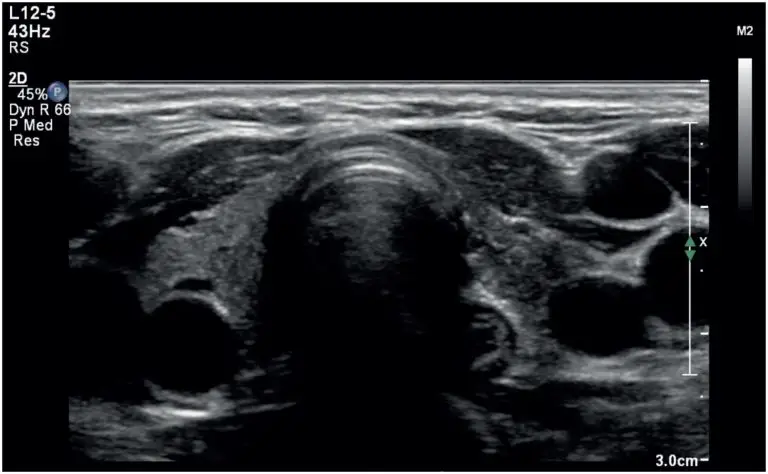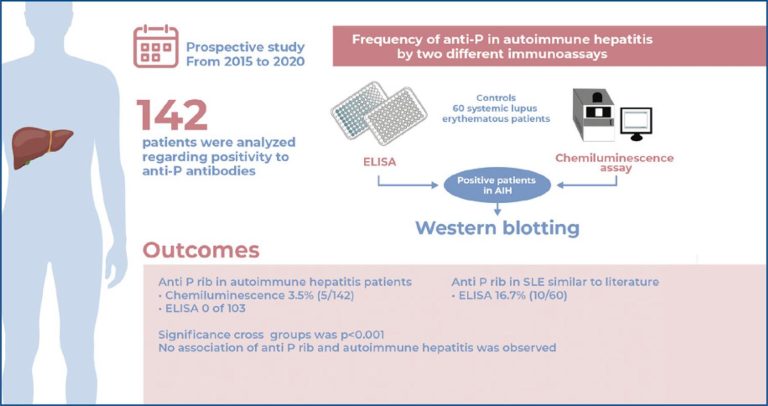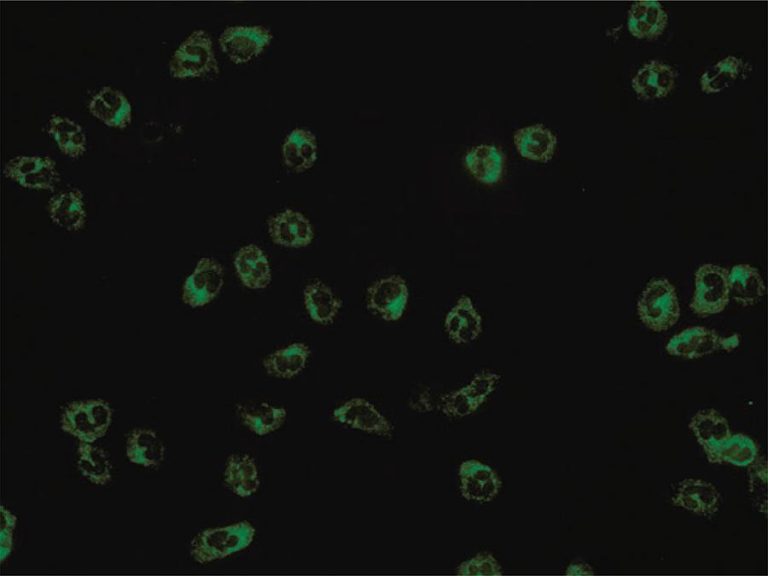13/ago/2025
Atrophic hypothyroidism associated with thyrotropin receptor antibodies
DOI: 10.31744/einstein_journal/2025RC1400
ABSTRACT Hypothyroidism is most frequently caused by Hashimoto’s thyroiditis. While thyrotropin receptor antibodies are well-known in Graves’ disease-induced hyperthyroidism, their role in hypothyroidism is emerging. We report the case of a 37-year-old woman with facial and periorbital edema, weight gain, and hoarseness suggestive of hypothyroidism. Elevated thyroid stimulating hormone (TSH; 131mIU/L) and decreased free thyroxine (0.2ng/dL, 2.6pmol/L) levels confirmed this diagnosis. Laboratory findings showed dyslipidemia, impaired renal function, elevated creatine phosphokinase levels, and anemia. Despite negative results for thyroid peroxidase […]
Palavras-chave: Autoanticorpos; Hashimoto disease; Hipotireoidismo; Long-acting thyroid stimulator; Gravidez; Receptors, thyrotropin; Tireoidite; Thyroiditis, autoimmune; Thyrotropin
06/nov/2024
Coexistent sickle cell anemia and autoimmune hemolytic anemia in two adolescents
DOI: 10.31744/einstein_journal/2024RC1105
ABSTRACT The development of alloantibodies or autoantibodies is a complication observed in sickle cell disease. Autoimmunization occurs in 7.6-12% of chronically or intermittently transfused patients with sickle cell disease; however, the clinical implications of autoAbs are unclear. Few studies have focused on pediatric sickle cell disease and autoimmune hemolytic anemia. Herein, we present the coexistence of sickle cell disease and autoimmune hemolytic anemia in two adolescent patients, focusing on their pathophysiology, diagnosis, clinical management, and outcomes.
Palavras-chave: Adolescente; Anemia,hemolytic,autoimmune; Anemia,sickle cell; Autoanticorpos; Autoimmunity
10/nov/2023
Anti-ribosomal P (anti-P) antibodies in patients with autoimmune hepatitis
DOI: 10.31744/einstein_journal/2023AO0375
Highlights Autoimmune hepatitis and systemic lupus erythematosus share several clinical features. Anti-P ribosomal antibody is a biomarker for systemic lupus erythematosus. The association between anti-P ribosomal antibody and autoimmune hepatitis has shown conflicting results. Our results showed no association between anti-P ribosomal antibody and autoimmune hepatitis. ABSTRACT Objective: Published studies have shown associations between anti-ribosomal P (anti-P) antibody and systemic lupus erythematosus with hepatic manifestations. This has been reported also in autoimmune hepatitis. However, the consistency of the latter association […]
Palavras-chave: Autoanticorpos; Ensaio de imunoadsorção enzimática; Hepatitis, autoimmune; Luminescence; Lúpus eritematoso sistêmico; Ribosomal proteins
22/jan/2020
Comparação entre os métodos de ensaio imunoenzimático e imunoflurescência indireta para a pesquisa de anticorpos anticitoplasma de neutrófilos
einstein (São Paulo). 22/jan/2020;18:eAO5132.
Ver Artigo22/jan/2020
Comparação entre os métodos de ensaio imunoenzimático e imunoflurescência indireta para a pesquisa de anticorpos anticitoplasma de neutrófilos
DOI: 10.31744/einstein_journal/2020AO5132
RESUMO Objetivo Avaliar o desempenho das metodologias de ensaio imunoenzimático e imunofluorescência indireta para a detecção de anticorpos anticitoplasma de neutrófilos em um contexto de laboratório clínico de rotina. Métodos Foram testadas 227 amostras pelas metodologias de imunofluorescência indireta e ensaio imunoenzimático com especificidades para anticorpos antiproteinase-3 e antimieloperoxidase. As proporções de amostras positivas foram comparadas por hipóteses de McNemar, e a concordância foi descrita pelo coeficiente Kappa de Cohen. Resultados A concordância dos testes foi 96,5%, e o coeficiente […]
Palavras-chave: Anticorpos, anticitoplasma de neutrófilos; Autoanticorpos; Doenças autoimunes; Ensaio de imunoadsorção enzimática; Técnica indireta de fluorescência para anticorpo





